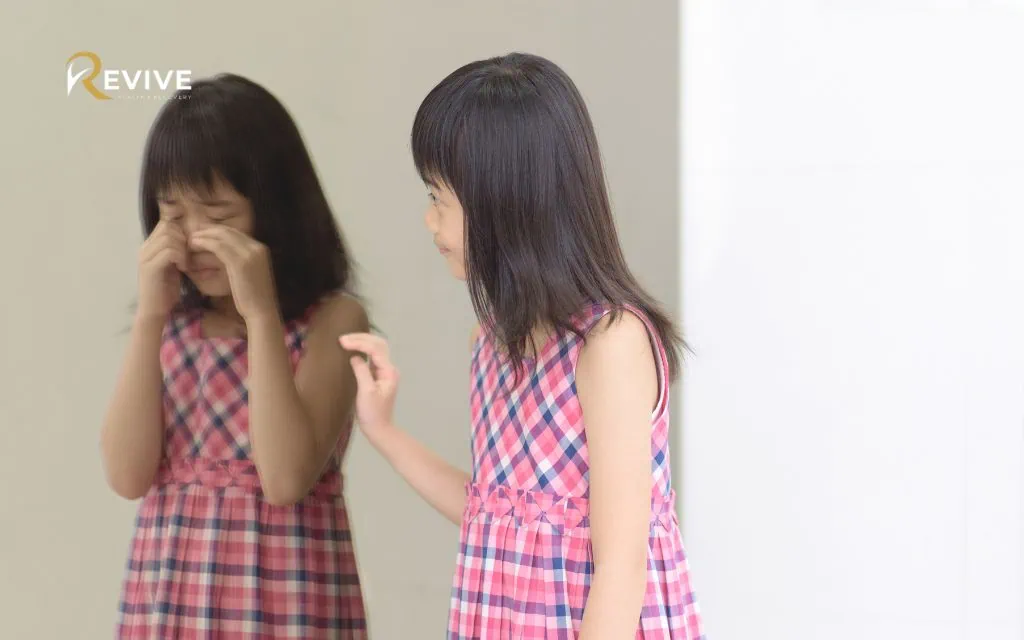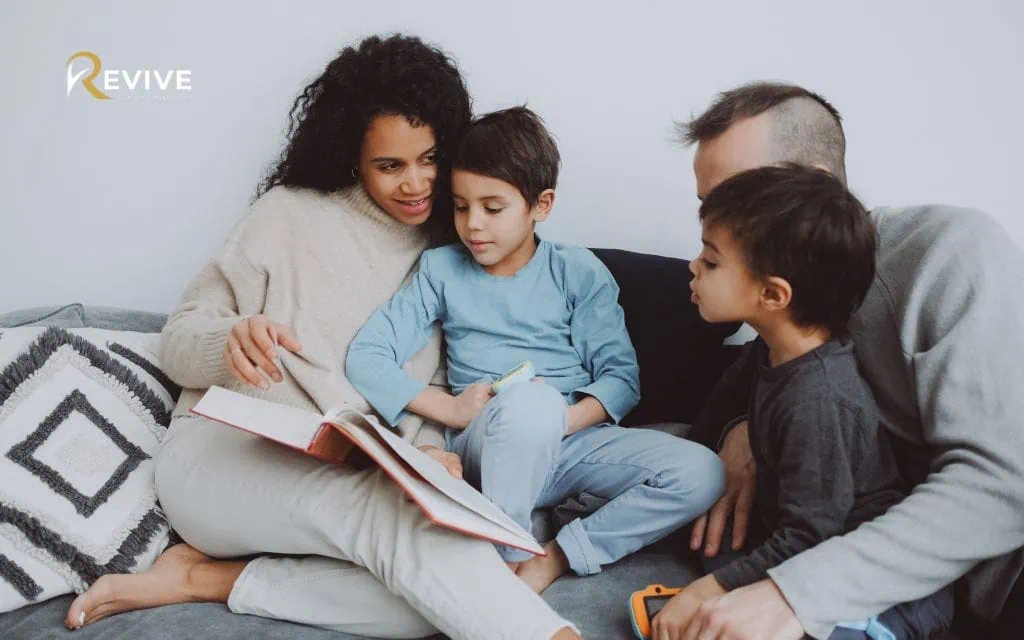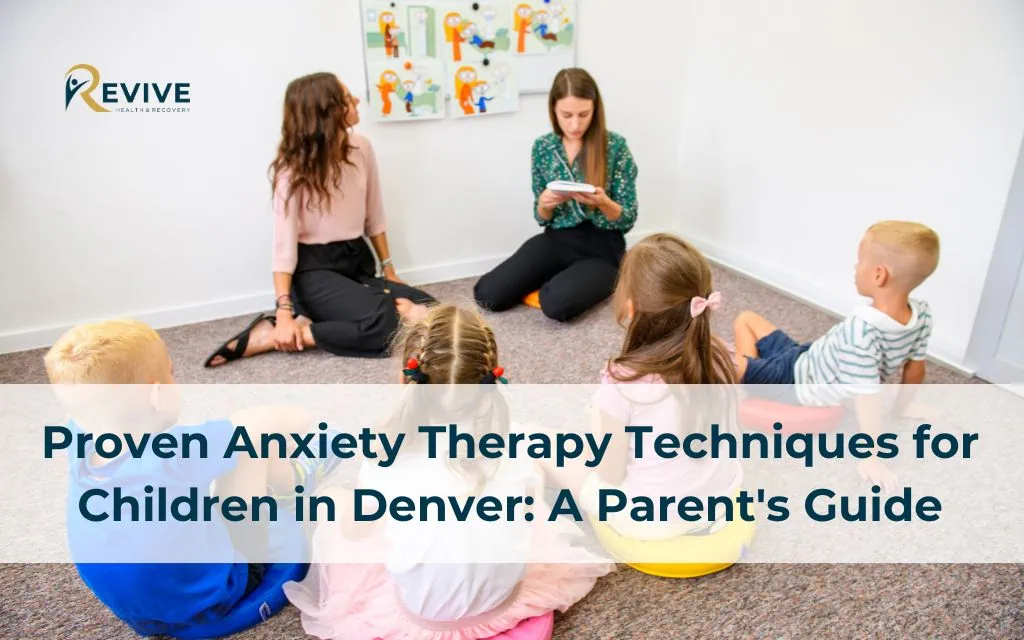Children can experience anxiety just like adults, but their struggles often go unnoticed. As a parent, understanding anxiety therapy techniques for children is crucial in helping your child manage their emotions and feel supported. In Denver, numerous therapeutic approaches are designed to address childhood anxiety, promoting emotional well-being and resilience. With stress management insights, you can empower your child with the tools to cope with their fears and worries in healthy, effective ways.
In this guide, we’ll explore proven therapy techniques that can help reduce anxiety in children, from cognitive-behavioral strategies to mindfulness practices. Whether your child struggles with separation anxiety, social fears, or general nervousness, these techniques will give you the knowledge to support them through their journey toward healing.
Understanding Child Anxiety in Colorado: What Parents Need to Know
Watching your child struggle with anxiety can be heartbreaking. As a parent, you want nothing more than to ease their worries and help them feel safe. But what exactly does childhood anxiety look like in Colorado, and how prevalent is it among our children?
The Current State of Child Anxiety in Denver
Colorado’s children are experiencing anxiety at alarming rates. According to the Healthy Kids Colorado Survey, approximately 26% of high school students reported feelings of sadness or hopelessness lasting for two weeks or more. This statistic represents thousands of children across Denver and the broader Colorado region who may benefit from professional intervention.
What makes Colorado unique? Our state’s environment and lifestyle factors create distinct challenges for children’s mental health. The high altitude can affect sleep patterns and energy levels in some children, potentially exacerbating anxiety symptoms. Additionally, our state’s achievement-oriented culture, with its emphasis on outdoor excellence and academic achievement, can create unique pressures for Colorado kids.
Common anxiety triggers specific to Denver and Colorado children include:
- Academic pressures in our highly-rated school districts
- Social comparison in competitive environments
- Weather-related disruptions and seasonal changes
- Adjustment challenges for families who have recently relocated to Colorado
How to Recognize Anxiety Symptoms in Your Child
Anxiety manifests differently in children than in adults. Rather than explicitly stating their worries, children often express anxiety through physical complaints or behavioral changes. Here’s what to watch for:
Physical symptoms:
- Frequent stomach aches or headaches with no medical cause
- Sleep disturbances, including trouble falling asleep or nightmares
- Changes in appetite
- Complaints about feeling dizzy or short of breath
- Fatigue that doesn’t improve with rest (which can be heightened at Colorado’s elevation)
Behavioral signs:
- Avoidance of certain activities, places, or people
- School refusal or sudden academic struggles
- Increased tantrums, meltdowns, or irritability
- Excessive reassurance-seeking (“Are you sure everything is okay?”)
- Clinging behavior or separation anxiety
Emotional indicators:
- Excessive worry about future events
- Persistent fears that seem out of proportion
- Irritability or mood swings
- Difficulty concentrating
- Negative self-talk or catastrophic thinking

Colorado-specific patterns might include anxiety related to weather events (such as wildfires or sudden snowstorms), altitude adjustment for new residents, or pressure to participate in outdoor activities even when uncomfortable.
Evidence-Based Therapy Approaches for Children with Anxiety in Denver
When seeking help for your anxious child, it’s important to choose therapeutic approaches with proven effectiveness. Denver offers several evidence-based options delivered by qualified child anxiety therapists.
Cognitive Behavioral Therapy (CBT): The Gold Standard
Cognitive Behavioral Therapy stands as the most thoroughly researched and effective anxiety therapy technique for children. This approach helps children identify unhelpful thought patterns and gradually replace them with more realistic thinking.
How CBT works for children with anxiety:
- Teaches children to recognize “worry thoughts” and challenge them
- Provides tools for managing physical symptoms of anxiety
- Creates step-by-step plans for facing fears gradually
- Empowers children with coping skills they can use throughout life
Denver providers specializing in child CBT include numerous private practices and specialized anxiety treatment centers. A qualified CBT therapist will tailor techniques to your child’s developmental level, making concepts accessible through age-appropriate activities and examples.
What to expect in a typical CBT session? Your child may engage in:
- Drawing or mapping out anxiety-provoking situations
- Learning to identify bodily sensations associated with anxiety
- Practicing relaxation techniques
- Developing a “fear ladder” to gradually face challenging situations
- Role-playing difficult scenarios in a safe environment
Success rates for CBT are impressive, with research showing 60-80% of children experiencing significant improvement after a complete course of treatment.
Play Therapy: Healing Through Creative Expression
For younger children or those who struggle to verbalize their feelings, play therapy offers a natural way to process anxiety. Through guided play, children can express fears, develop coping strategies, and practice new behaviors in a safe, supportive environment.
Types of play therapy available in Denver include:
- Child-centered play therapy, where the child leads the play
- Directive play therapy, where the therapist guides activities
- Filial therapy, which involves parents in the therapeutic play process
- Sand tray therapy, using miniature figures and sand to create worlds
Play therapy is particularly appropriate for children ages 3-12, especially those who:
- Have difficulty expressing emotions verbally
- Have experienced trauma
- Are highly imaginative
- Show resistance to traditional “talking” approaches
During a play therapy session at a Denver facility, your child might:
- Use toys to act out scenarios that cause anxiety
- Create art that represents their feelings
- Engage in therapeutic games designed to build coping skills
- Use puppets or dolls to express thoughts they find difficult to say directly
Denver has several specialized play therapy resources, including centers that focus exclusively on this approach for treating childhood anxiety.
Exposure and Response Prevention (ERP) Therapy
For children with specific phobias or obsessive-compulsive tendencies, Exposure and Response Prevention therapy can be remarkably effective. ERP gradually exposes children to anxiety-provoking situations while preventing avoidance behaviors.
Denver specialists implement ERP by:
- Creating a detailed hierarchy of fears specific to the child
- Teaching anxiety management techniques before beginning exposures
- Starting with mildly challenging situations and progressing gradually
- Celebrating each success, no matter how small
Success stories from Colorado families often highlight how quickly children can make progress with this approach when conducted by trained professionals in a supportive environment.
Innovative Anxiety Treatment Approaches Available in Denver
Beyond traditional therapies, Denver offers several innovative approaches that may be particularly helpful for children who haven’t responded to conventional treatments.
Art and Expressive Therapies for Anxious Children

For children who struggle to put their feelings into words, art therapy and other expressive approaches can provide a crucial outlet. Denver’s vibrant arts community has fostered the development of numerous creative therapy programs.
Benefits of art therapy include:
- Allowing non-verbal expression of complex emotions
- Creating distance between the child and their anxiety through symbolic representation
- Providing a sense of control and mastery
- Building confidence through creative accomplishment
Denver’s art therapy resources for children include specialized centers and individual practitioners who use various media—drawing, painting, sculpture, music, or movement—to help children process and manage anxiety.
EMDR Therapy for Children with Anxiety and Trauma
Eye Movement Desensitization and Reprocessing (EMDR) therapy, originally developed for trauma treatment, has shown promising results for anxious children, particularly those whose anxiety stems from traumatic experiences.
How EMDR works for younger populations:
- Uses bilateral stimulation (often through eye movements, tapping, or sounds)
- Helps the brain process disturbing memories or thoughts
- Adapted for children using age-appropriate techniques
- Usually shorter in duration than traditional talk therapy
Denver-based EMDR specialists for children have developed child-friendly protocols that make this powerful therapy accessible even to very young children.
Nature-Based Therapy: Leveraging Colorado’s Natural Environment
Colorado’s stunning natural landscape offers unique therapeutic opportunities for anxious children. Research increasingly supports the effectiveness of nature-based interventions for reducing anxiety symptoms.
Denver programs incorporating nature in anxiety treatment include:
- Forest therapy groups specifically for anxious children
- Adventure therapy programs that build confidence through outdoor challenges
- Animal-assisted interventions at ranches and farms near Denver
- Therapeutic garden programs that combine mindfulness with nature connection
The accessibility of mountains, parks, and open spaces makes Colorado an ideal location for nature-based anxiety interventions, allowing therapists to incorporate the healing power of the outdoors into treatment plans.
Parent-Led Anxiety Management Strategies for Colorado Families
While professional therapy plays a crucial role in treating childhood anxiety, parents are the most consistent presence in a child’s life. Learning to support your anxious child at home is an essential complement to formal therapy.
Effective Breathing and Mindfulness Techniques for Children
Simple mindfulness and breathing exercises can give children powerful tools for managing anxiety in the moment. Age-appropriate techniques include:
- The “hot chocolate” breathing technique: Have your child pretend to hold a mug of hot chocolate, breathe in the aroma, then blow gently to cool it down
- The 3-3-3 anxiety rule: Name three things you see, three sounds you hear, and move three parts of your body
- Body scan meditation: Guide your child to notice sensations in each part of their body, promoting awareness without judgment
- Five-finger breathing: Trace the outline of one hand with the finger of the other hand, breathing in when tracing up a finger and out when tracing down
Denver offers several mindfulness programs designed specifically for families, including parent-child classes that teach these techniques together.
Parent-Led Cognitive Behavioral Techniques
Research shows parent-implemented CBT can be remarkably effective, sometimes on par with therapist-led interventions. With proper guidance, parents can learn to:
- Help children identify and challenge anxious thoughts
- Guide gradual exposure to feared situations
- Reinforce brave behavior rather than avoidance
- Model healthy responses to uncertainty and worry
Several Denver centers offer parent training programs specifically focused on anxiety management techniques, empowering you to become your child’s primary support person.
Creating a Supportive Home Environment for Anxious Children
Your home environment can either exacerbate or alleviate your child’s anxiety. Consider these strategies:
Physical space considerations:
- Create a designated “calm down” area with comfort items
- Reduce sensory overload by managing noise, lighting, and clutter
- Display visual reminders of coping strategies where your child can easily see them
Routine and structure strategies:
- Maintain consistent daily schedules to reduce uncertainty
- Prepare for transitions with advance notice and visual schedules
- Build in “worry time”—a designated 10-15 minutes for discussing concerns
Communication techniques:
- Validate feelings without reinforcing fears (“I understand you’re scared, and I’m here with you”)
- Ask specific questions rather than “How was your day?”
- Use visual aids to help children express emotion intensity
Denver parent support groups offer valuable connections with other families navigating similar challenges, providing both emotional support and practical strategies.

Finding the Right Anxiety Treatment Provider in Denver
With numerous treatment options available, finding the right provider for your child can feel overwhelming. Here’s how to navigate the Colorado mental health landscape.
Navigating the Colorado Mental Health System for Children
Colorado offers several pathways to mental health care for children with anxiety:
Insurance considerations:
- Most health insurance plans now cover mental health services
- Colorado’s mental health parity laws require equal coverage for mental and physical health
- Many Denver providers offer sliding scale fees or payment plans
Public vs. private options:
- Community mental health centers provide affordable care throughout Denver
- Private practitioners may offer more specialized anxiety treatment
- University training clinics often provide quality care at reduced rates
School-based resources:
- Many Denver schools have counselors trained in anxiety management
- Ask about the Multi-Tiered System of Supports (MTSS) at your child’s school
- Consider a 504 plan or IEP if anxiety impacts your child’s education
Colorado has also implemented several mental health initiatives specifically for children, including expanded telehealth options that increase accessibility for families throughout the state.
Questions to Ask When Choosing a Therapist for Your Child
Finding the right match between your child and their therapist is crucial for successful treatment. Consider asking potential providers:
- What specific training do you have in treating childhood anxiety?
- Which therapeutic approaches do you use, and why?
- How do you involve parents in the treatment process?
- How do you measure progress and determine when therapy is complete?
- What is your experience with my child’s specific type of anxiety?
- Do you coordinate care with schools and other providers?
Also consider practical matters like location, scheduling flexibility, and whether the therapist’s personality seems like a good match for your child.
Top-Rated Child Anxiety Treatment Centers in Denver
Denver offers several specialized centers focused on treating childhood anxiety:
- Children’s Hospital Colorado offers comprehensive anxiety treatment programs, including specialized services for OCD, selective mutism, and school refusal
- Anxiety Solutions of Denver provides evidence-based treatment specifically for anxiety disorders
- The Mariposa Center specializes in trauma-informed care for anxious children
- Rocky Mountain Counseling Collective offers integrated approaches to anxiety treatment
- Decade2Connect provides culturally responsive anxiety treatment for Denver’s diverse communities
5 Reasons to Choose Revive Health Recovery for Your Child’s Anxiety Treatment
- Specialized Expertise in Child Anxiety: Our team includes licensed therapists with extensive training and experience in evidence-based anxiety therapy techniques for children of all ages.
- Comprehensive Assessment and Treatment Planning: We don’t just treat symptoms; we identify underlying causes and develop personalized treatment plans addressing your child’s specific needs.
- Family-Centered Approach: We recognize parents as essential partners in treatment, providing you with tools and strategies to support your child’s progress at home.
- Integrated Care Model: Our collaborative team approach ensures your child receives consistent care across all aspects of their treatment journey.
- Convenient Denver Location: Located at 1427 S Federal Blvd, we offer a welcoming, child-friendly environment that’s easily accessible from throughout the Denver metro area.
FAQs About Child Anxiety Treatment
How do I know if my child’s anxiety requires professional treatment or if it’s just normal childhood worry?
While occasional worries are normal, seek professional help if anxiety interferes with your child’s daily functioning, school performance, sleep, or social interactions. Revive Health Recovery offers comprehensive assessments to determine if treatment is needed.
What is the average cost of anxiety therapy for children in Denver, and will insurance cover it?
Treatment costs vary based on the type of service and provider. Most insurance plans cover mental health treatment, though coverage differs by plan. For specific information about costs and insurance coverage at Revive Health Recovery, please contact us directly at (303) 268-4655.
How long does it typically take to see improvement when a child starts anxiety therapy?
While every child is different, many parents report seeing initial improvements within 8-12 sessions of consistent therapy. At Revive Health Recovery, we track progress regularly and adjust treatment approaches as needed to ensure optimal outcomes.
Can medication be helpful for children with anxiety, and at what age is it considered?
Medication can be effective, especially when combined with therapy. The decision to use medication depends on many factors, including symptom severity and the child’s age. Revive Health Recovery provides comprehensive evaluations to determine the most appropriate treatment approach for each child.
Are there support groups in Denver for parents of children with anxiety?
Yes, Denver offers several support groups, including those at Revive Health Recovery, where parents can connect with others facing similar challenges while learning effective strategies to support their anxious children.
Conclusion
Watching your child struggle with anxiety can feel overwhelming, but you don’t have to face this challenge alone. With the right support, children can learn to manage anxiety and develop resilience that will serve them throughout life.
Revive Health Recovery is committed to providing compassionate, evidence-based anxiety therapy techniques for children throughout Denver and Colorado. Our team of experienced professionals understands the unique challenges faced by anxious children and their families, and we’re here to help.
Ready to take the first step toward helping your child overcome anxiety? Contact Revive Health Recovery today at (303) 268-4655 or email us at contact@revivehealthrecovery.com. Our team is available 24/7 to answer your questions and guide you through the process of getting started with treatment.
Your child deserves to experience the joy and freedom that comes with professional managing anxiety effectively Denver. Let us help them – and your entire family – find the path to lasting wellness.



